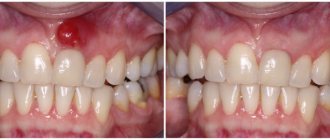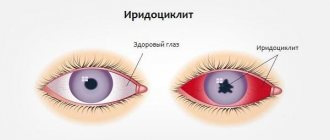Stress is the response of the human psyche to the strong emotions he experiences, which can be both negative and positive. as well as the overvoltage associated with them. It is believed that stress should be present to a small extent in the life of any person, because at the moment of stress, adrenaline is produced, which is needed in order to solve the problem. This gives you the opportunity to move forward and improve.
But if there is too much stress, a person begins to get overly tired, lose strength and the ability to find solutions to everyday problems. The accumulated tension results in chronic stress, which is dangerous because it provokes various disorders of systems and organs that undermine health.
Both men and women, of any age, nationality, social status and financial capabilities, can be equally exposed to stress.
What it is
Almost all people experience stress at some point. It can be short-term and superficial: it passes during the day and does not affect deep mental and physiological processes. For example, we arrived at work and realized that it seemed like we hadn’t turned off the iron. You have to twitch and worry about this all day, but in the evening, upon returning home, all worries disappear without a trace.
But stress can also be long-term and profound. For example, due to the death of a loved one, when life loses all meaning. Or an unexpected dismissal from a well-paid and beloved job, where the best years have passed and true friends, a good team and the opportunity for further career growth remain. After this, people sometimes cannot recover for years, which negatively affects their state of mind and health.
So, chronic stress is a long-term and uncontrollable state of internal tension that exhausts, forcing you to live in constant combat readiness. The body's resources are melting before our eyes, which seriously undermines physical and psycho-emotional health.
The diagnosis of chronic stress is made when a person remains in a state of constant tension for several weeks. Over time, under the influence of treatment and emotional-volitional efforts, the exacerbation subsides, the symptoms smooth out, and the patient returns to the usual rhythm of life. But as soon as a new stressor appears or a psychological trauma occurs, the disease recurs.
Many people mistakenly believe that chronic stress is incurable and that throughout their lives they will have to soar, like on a swing, from periods of calm to periods of exacerbation. In fact, with professional therapy, mental hygiene and psychoprophylaxis, you can get rid of it.
Types of stress
The term stress refers to the physiological response of the body when the impact of external factors on the psyche causes the adrenal glands to become active. Stress can equally arise from the influence of negative factors (in this case, this type of stress is called distress) and from the influence of positive ones (the name of this type is eustress). Positive emotions, no matter how strong they are, do not have a negative impact on human health, which cannot be said about negative ones. They are the cause of all kinds of mental and physical health disorders.
By “origin”, stress caused by negative emotions can be psychological or neuropsychic. This separate type, in turn, is usually divided into 2 more types: psycho-emotional stress, which develops on the basis of anger, strong resentment or hatred, and informational stress, which arises due to an overabundance of various types of information. This type of stress is most often present in those whose occupation involves processing a huge amount of information. There is also physical stress, which is usually divided into 4 types:
- light stress , which appears in a person as a result of being forced to spend a long time in an illuminated place, for example, in northern conditions (polar days);
- pain , developing after severe injury or damage;
- food – a consequence of starvation or, conversely, eating food that a person does not like;
- temperature , formed during prolonged exposure of a person to low or high temperatures.
Another type of negative stress is the result of a person being in extreme situations (floods, military operations, disasters, hurricanes, etc.). This type is caused by strong worries about your life or the lives of loved ones. It is so powerful that it often leaves an imprint on all the remaining years of a person.
Causes
Chronic stress develops when:
- a person cannot cope with deep emotional shock for a long time (more than 2-3 weeks);
- short-term and superficial stressful situations are repeated too often (almost daily);
- there is no professional help (consultations with a psychotherapist or at least a psychologist);
- there is no desire to fight destructive thoughts and feelings.
Stressors (provoking factors) can be a variety of circumstances.
Psychological:
- overload: long working hours, overtime assignments, lack of days off and vacation;
- constant conflicts in the family: quarrels and misunderstandings with a significant other or relatives, betrayal, betrayal, lack of warm and trusting relationships, indifference;
- difficult separation, divorce, unrequited love;
- dangerous illness or death of a loved one;
- lack of money, unfair or unexpected dismissal, lack of work;
- repairs, moving, loss of apartment, poor living conditions;
- chronic information stress is diagnosed in most students and worsens during sessions;
- personal qualities determined by the type of nervous system: excessive sensitivity and emotionality, vulnerability, egocentrism, pessimism, perfectionism, increased demands on oneself.
Physiological:
- long-term chronic illness requiring constant use of medications, regular examinations and planned hospital stays;
- living in environmentally unfavorable conditions or areas regularly exposed to natural disasters;
- daily excessive physical activity is becoming a common cause of chronic stress in athletes;
- severe pregnancy, childbirth with complications, health problems in the newborn;
- taking medications on an ongoing basis;
- long-term diet.
Often chronic stress is the result of a whole bunch of difficulties and insoluble contradictions. There is one stressor at home, another at work, a third in relationships, and even in terms of health, modern people constantly face problems. There are daily quarrels with my wife, a child is doing poorly in school or is sick, a boss is nagging, a colleague is setting him up, his heart is playing pranks - each circumstance becomes the cause of worries and obsessive thoughts. And there is no time to fight them - so the water begins to sharpen the stone drop by drop.
Often a person does not even suspect that he is in a chronic state of stress. He may not experience any worries or anxiety, but eventually a diagnosis will be made. This happens with athletes: from childhood they get used to unbearable daily loads and do not think about their destructive effect. Or with those who live next to a chemical plant: yes, the head hurts, allergies began to appear often, shortness of breath was tormented - this is probably due to age. But no, this is a consequence of chronic stress due to the constant exposure of the body to harmful particles in the air.
This mechanism for the development of the disease can be compared to medieval torture, when water was methodically dripped onto the head of a bound person. As a result, he went crazy or died.
Stages of stress
Stress is considered to go through 3 stages. The speed of their development and change depends on the force with which stress acts on the mental sphere of a person and in what state it is in. Stages include:
- Anxious stage. When it occurs, a person cannot control his thoughts and actions, his behavior changes in the opposite direction and becomes extremely different from what it was before.
- Resistant stage. At this stage, the body’s vital resources accumulate and are mobilized to combat stress. This is necessary so that a person can find the right solution and take the necessary measures to get out of the current situation.
- Exhaustion stage. This stage replaces the previous one and develops as a result of prolonged stress, due to the fact that the body is no longer able to withstand the load. It is at this stage that damage to the visceral organs occurs.
According to a more modern classification, there are 4 stages of stress:
- Mobilization or strengthening of human attention and motor activity. At this stage, a person’s internal forces are spent carefully, and if the process stops during this period, then stress does not damage the body, but strengthens it.
- The emergence of strong negative emotions: rage, anger and aggression, which the body needs in order to achieve its goal.
- The emergence of negative emotions of the passive type . They arise due to the wasteful expenditure of energy by the body at the previous stage, which greatly depletes the body. The person becomes apathetic and no longer relies on his own strength to get out of the current situation. Depression may result from a pessimistic mood.
- The last stage is absolute demoralization. This stage occurs when the stress factor affects the human psyche constantly and does not reduce its intensity. The patient comes to terms with the fact that nothing can be done, becomes indifferent and does not want to solve any problems. May refuse treatment.
The last stage can last a long time and cause a complete decline in the psycho-physical capabilities of the body.
Signs
Each person experiences chronic stress differently. The most common symptom complex:
- irritability, short temper, nervousness, attacks of aggression, moodiness;
- impairment of cognitive functions: inability to concentrate, absent-mindedness, memory impairment, slowness of mental reactions;
- pathological unreasonable jealousy, mistrust;
- fatigue in the morning, apathy, lack of joy;
- isolation, reluctance to communicate with anyone, breaking long-term relationships;
- sleep and appetite disorders;
- development of phobias, hysteria, panic attacks, sleep apnea;
- the emergence of addictions: from nicotine, alcohol, drugs, gadgets, food.
Psychologists also identify individual symptoms in women:
- menstrual irregularities;
- frigidity;
- reluctance to communicate with members of the opposite sex;
- lack of sexual desire;
- inability to get pregnant.
Chronic stress is more often diagnosed in men, since in most cases they keep everything to themselves and do not share with anyone so as not to look weak. Problems accumulate, worries do not find a way out and destroy from the inside. It is believed that this condition becomes the main cause of heart attacks.
Symptoms in women
Most women take everything too emotionally. For this reason, they are more susceptible to negative factors. The slightest negativity can lead to the development of stress. When stressed, women often suffer from headaches, menstrual and hormonal disorders. The disorder makes a woman feel helpless. Getting rid of this feeling alone is quite difficult. At such moments you cannot do without the help of loved ones.
How to cope with stress? To overcome stress, you need to give yourself more time. For example, you can go to a beauty salon or go to nature. Such a pleasant vacation will help you tune in to the positive and accept the help of loved ones.
The most dangerous thing for women is postpartum depression. After all, the child feels all the negative emotions of the mother, and they can have a bad effect on the baby’s health. The main manifestations of postpartum stress are: interruption of milk production, sleep disorders, and eating disorders. Only the woman who gave birth worries too much, is afraid of doing something wrong and considers herself a bad mother, feels guilty, which leads to depression.
How to cope
Chronic stress is much more difficult to get rid of than ordinary stress. It is almost impossible to do this without outside help. Therefore, the first step on the path to recovery is making an appointment with a psychotherapist.
At the same time, while undergoing psychotherapeutic treatment, you need to work on yourself, otherwise the sessions will not give any results. At the same time, you need to be patient, since you will have to fight the chronic course for more than one week. With the help of a specialist, a whole rehabilitation program is organized. What can be done in such a situation?
Relax
Take a vacation
You cannot cure chronic stress with any tranquilizers if you continue to work in the same mode, continue to go to a dusty office and conflict with bosses and colleagues. Since in the new ICD-11 this diagnosis is listed under a special code (6B60-6B65), the psychotherapist can give an official sick leave, which will allow you to take a break from everyday work and restore health. As a last resort, you can take a vacation - planned or at your own expense. Moreover, for 2 weeks. It is unlikely that you will be able to get rid of such long-term tension in less time.
On topic: Stress at work
Change the scenery
Since environmental conditions are most often the causes of stress, they need to be changed. Leave. And it doesn’t matter where: to the dacha, to grandma’s village, to another city, on a trip around the world, to a resort. The main thing is not to return to your usual life for the same 2 weeks (this is the minimum). Where you went, there should be no reminders of past experiences.
Calm down
At the time of diagnosis, chronic stress has already sufficiently weakened and undermined the nervous system. Therefore, the main work in this direction is carried out by a psychotherapist. But the patient himself must make efforts to help him.
Get rid of worries
To do this, you need to learn to switch from negative thoughts to positive ones, and nip any negative feelings in the bud. Do you often worry that you didn’t turn off the gas or the iron when leaving the apartment? Get into the habit of taking photos of the gas and ironing board before leaving. Does it throw you off balance when something breaks? You need to stop attaching too much importance to things, find an alternative for each item, or have a financial safety net that will make up for such losses. In such trivial ways you can cope with any experience.
Eliminate the main stressor from your life
Chronic stress is based on either deep psychological trauma or a tangle of psycho-emotional problems that exhaust you every day. In the first case, you should understand what happened and why this or that event plunged you into such a state. Realize that it is already in the past and move on.
Each of us has our own main stressor.
If the problem is small but frequent difficulties, they need to be eliminated separately. Is your child constantly sick? Finally, find the money and make an appointment with a good immunologist to get rid of frequent colds and viruses once and for all. Is your wife nagging and demanding attention? Try to fall in love with her again, buy a gift, go to a movie or a cafe together - in a word, improve your relationship. By consistently sorting out this petty household rubbish, you will gradually get rid of stress.
Find a way to relax
In a state of chronic stress, this is the most difficult thing - to find what will bring pleasure. Sometimes you have to sift through a lot of known methods in order to find the only one that will pull you out of the abyss of apathy and indifference. What options are most often effective: new acquaintances (including relationships with the opposite sex), playing sports, changing your appearance (manicure, hairstyle, beauty salon, updating your wardrobe), shopping with friends, relaxing at sea, hobbies (beading, making homemade soap or tilde, patchwork). The main thing is to get carried away and enjoy it.
Join the healthy lifestyle
Chronic stress takes root not only in the psyche. Physical health is also under serious threat. To recover, you will need rehabilitation, many points of which are borrowed from a healthy lifestyle:
- Exercise daily and move more.
- Give up bad habits and addictions.
- Learn to take a full break from work.
- Eat a healthy, balanced diet, following a meal schedule.
- Strengthen the immune system (by hardening, for example, or vitamin therapy).
- Observe personal hygiene rules.
- Treat all diseases in a timely manner.
- Maintain a good emotional and mental state.
- Get enough sleep.
- Stick to a single daily routine.
Many people underestimate the introduction to a healthy lifestyle as a component of complex psychotherapy. However, when faced with unexpected problems every day that throw you out of your usual rut, the body needs just peace and stability. This will reduce the risk of stressors.
We also recommend that you read our previous article (link below), which will teach you how to react correctly to stress.
We recommend: Stress resistance: no stress - no problems!
Methods for quickly relieving tension and stress
Some techniques help you get rid of severe stress in a short time. These include the following methods:
- Physical exercises - jogging, cycling, swimming, dancing, playing tennis distract from the problem;
- Deep breathing - concentrating on your own breathing helps you forget about the stressor for a while and look at the situation from the outside;
- Relaxation – promotes sound sleep and effectively relieves stress;
- A break from everyday life - going on vacation, going to the theater or cinema, reading books, artificially creating images in your head, for example, a forest, river, beach, allow you to escape;
- Meditation – gives a feeling of peace and well-being;
- Massage is one of the most effective ways to relax and reduce the effects of severe stress;
- Slowing down the pace of life helps you look at the current situation in a calmer environment;
- Revision of life positions - attempts to achieve unrealistic goals lead to nervous breakdowns and stress, and inevitable failures only aggravate the condition.
Treatment
Psychotherapeutic treatment of chronic stress in adults is a course of regularly attended sessions (1-2 times a week) using autogenic training, role-playing games and even hypnosis. Each specialist, depending on the situation, determines which method will be more effective.
Family psychotherapists most often work with children with this diagnosis. Parents, relatives, and the child’s teachers (or educators) are actively involved in the sessions. In such cases, the main thing is not just to cure, but also to eliminate further harmful consequences. Otherwise, the psychotrauma suffered will determine stable patterns of behavior throughout life.
Psychotherapeutic methods
What methods can effectively treat chronic stress:
- art therapy;
- autogenic training;
- behavioral psychotherapy;
- breathing practices;
- body-oriented therapy;
- role-playing games;
- family psychotherapy, etc.
To identify the underlying stressor, hypnosis is often used in initial sessions.
Physiotherapy
Physiotherapy is an excellent way to cope with prolonged stress. Procedures are prescribed that increase physical and cognitive performance, reduce fatigue, and restore inhibitory-excitatory processes in the central nervous system:
- soothing massage;
- acupuncture;
- magnetic therapy;
- balneotherapy;
- thalassotherapy;
- hydrotherapy;
- hirudotherapy;
- meditation, yoga;
- Healing Fitness;
- laser therapy.
Since most of the listed procedures belong to the field of alternative medicine, the patient’s permission is taken for their use.
Vaccination against stress
Often in practice, the technique of stress-vaccination therapy, developed by the Canadian psychologist and psychotherapist Donald Meichenbaum, is used. It involves three phases of working with the patient:
- Conceptual - searching for a stressor, reconsidering the problem, developing a solution strategy, increasing self-esteem.
- Formation of new skills and abilities to overcome stressful situations
- Reinforcement of skills through role-playing games.
Since 1976, Maichenbaum's method of self-instruction has been considered one of the most effective techniques in the treatment of chronic stress.
Drug treatment
The best sedatives for chronic stress:
- Barboval drops and capsules;
- Validol tablets;
- Valocordin drops;
- Valerian tincture;
- Motherwort forte tablets;
- Sympathil tablets.
Sedatives for chronic stress
Nootropics:
- Piracetam injections and capsules;
- Glycine tablets (allowed for children);
- Vinpocetine tablets and infusions;
- syrup, tablets, capsules Pantogam;
- Actovegin tablets and injections.
Psychotherapists may also prescribe central nervous system stimulants, tranquilizers, antidepressants, and antipsychotics. Each drug is prescribed by a doctor depending on the individual characteristics of the body and the stage of the disease.
Attacks of anger
Irritability in men often appears under conditions of psychological stress. If a person is able to control his own emotions, he does not allow impulsive behavior. However, not everyone can manage themselves. And attacks of anger provoke a man to actions that entail serious consequences. Internal aggression periodically spills over to others. Any, even harmless, statement or action causes a storm of negative emotions. Such incontinence provokes quarrels and problems in the family. After all, not everyone can put up with such behavior.
Consequences
If short-term stress does not take root in the body and psyche, then chronic stress has the most detrimental consequences:
- frequent infectious and viral diseases due to weakened immunity;
- gastrointestinal disorders: maldigestion syndrome, excessive appetite, compulsive overeating and, as a result, obesity (there is also a reverse reaction - lack of appetite and anorexia as a result);
- cardiovascular disorders: arrhythmia, tachycardia, hypertension, hypotension, heart attack, stroke;
- vegetative-vascular dystonia: dizziness, migraine, sore throat and muscle spasms, changes in body temperature, tremor, hyperemia of the skin;
- early aging of the body: wrinkles, gray hair, baldness, dry skin, excessive pathological pigmentation;
- exacerbation of congenital, chronic diseases: asthma, allergies, ulcers, gastritis, heart failure, epilepsy.
But the most important consequence is that stress systematically, day after day, destroys the nervous system. The result is all kinds of neuroses, psychoses and neurasthenia. Therefore, it is so important to stop it in time to maintain health.
Relieve stress - add fatigue
In one American Psychological Association survey, women were more likely than men to report fatigue as a symptom of stress. In addition, stress can affect lifestyle habits such as eating too much or eating unhealthy foods, avoiding exercise, drinking too much alcohol, smoking, etc. Unfortunately, these stress reactions create a vicious cycle: by depleting the body's natural stress relievers, they raise stress levels even further.
In the Stress in America survey, women were 50% more likely than men to report that eating, especially eating too much or eating unhealthy food, was a way to cope with stress. And while respondents said they wished they had more willpower to change their eating habits, they cited lack of energy or excessive fatigue as the main obstacle to strengthening their willpower.
Nearly 50% of women in the APA survey said their stress had increased over the past five years, with married women reporting higher levels of stress than single women. This may be partly due to the “second shift” after the working day - cooking, cleaning, caring for children, etc. This double workload can be quite exhausting.
Back to contents
Emotional release
If possible, then it’s worth going somewhere on vacation. By the way, it must be said that a change of environment has a positive effect on a person’s mental state. When everything around is new and unknown, he involuntarily forgets about problems, if not completely, then at least partially - he is carried away by the new area.
In general, every person is recommended to regularly go on vacation. Many spend their holidays at home, but psychologists do not advise doing this - in fact, there is no emotional release: the same situation, the same environment. This also greatly affects the nervous system. In general, emotional release is necessary. It would be best to combine all of the above. Rent a hotel room somewhere on the seashore, go to the local shops, and in the evening have a delicious dinner with delicacies and a little drink. This really helps.
Psychological nuances
There are also other ways in which nervous stress can be treated. The symptoms, as can already be understood, are mainly associated with psychological factors. Accordingly, we need to act in this direction. The mental illness that is stress is easier to overcome if you begin to heal the wounds of your soul. No matter how strange it may sound, that’s how it is. It’s worth starting to please yourself with pleasant things. Eating something tasty, and not cooking it yourself, but ordering it delivered to your home will be much more enjoyable. You can treat yourself to a new thing: buy a new thing that you’ve had your eye on for a long time. Many people decide to visit an appropriate specialist - a psychologist or psychiatrist. Some are prescribed special medications, antidepressants. But this happens in special situations. It shouldn't come to this.
General information
During times of stress, our body produces the hormone adrenaline, which is necessary in order to respond to danger: it increases the body's ability to concentrate and gives strength. Stress in small amounts is normal and even beneficial. It serves as motivation and challenge, making life more fulfilling and emotional. This function is performed by the hormone cortisol, which is released during stress.
However, there is an invisible threshold, crossing which life and health are put at risk. The brain becomes foggy, and there is an inability to make adequate decisions. And with chronic stress, a person turns into a neurotic and begins to worry about everything in the world. That is, it becomes a habit and simply kills the body even more than tobacco and alcohol.
According to recent data, children are incapable of experiencing stress. They experience shock and may be afraid, but for some reason stress is unusual for them. Usually it appears after 15-20 years, and unnoticeably. First, anxiety appears, then anxiety disorders, apathy, anger at oneself and others. As a result, all this becomes a habit and takes the form of stress, for which no reason is needed.
Healthy sleep is the key to health
Everyone knows that the best medicine that truly treats nervous stress, the symptoms of which were described above, is sound sleep. That’s why it’s worth making your sleep better. Physical exercise helps a lot in this case. A few hours before bedtime, preferably in the fresh air, you should do a few simple movements. A regular jog will do. It is recommended to take a bath before going to bed. You can add foam, salt or soothing aromatic oils. It will be even better if you combine taking a bath and listening to calm music. It is also recommended to ventilate the room well before going to bed. If you follow these simple tips, you will notice how your sleep becomes better, and it is much easier to get up in the morning.
Failures in your personal life
How does stress manifest itself in men? First of all, psychological stress affects relationships with loved ones. As a rule, in situations involving emotional overload, a person’s behavior changes. Children, parents, and spouses suffer from his aggression. Even the strongest marriage can succumb to the onslaught of stress. A man becomes demanding, capricious, gloomy. Some people react to emotional overload with anxiety and worry. Other people fall into the grip of addictions or commit aggressive actions, which result in domestic violence and family breakdown. Sometimes a man begins to approach life with pessimism, blames himself for all failures, gives up, and does not try to correct the current situation. Naturally, it is very difficult to contact such an individual. Even those close to him begin to avoid communicating with him. Failures in your personal life create new problems. And it is very difficult to get out of this vicious circle.
Animal disorders
Mental illness doesn't just happen to people. For example, you can often observe depression in a dog or stress in a cat. Symptoms in this case are more difficult to identify because the animals do not speak. But they feel everything. Animal psychologists identify several of the most common reasons why cats may experience stress. For example, moving to a new place or rearranging furniture. Also the birth of a child, the arrival of strangers or the appearance of another animal in the house. Cats know how to love, we must remember this. If you do not pay enough attention to them, this can cause the animal to experience distress. They, just like people, need to feel needed. Symptoms include decreased activity of the animal, poor appetite, and lack of sleep. To help your pet, you need to devote more time to it - play and talk with it, treat it with something tasty, caress it. In any case, the strange behavior of the animal cannot be ignored.











